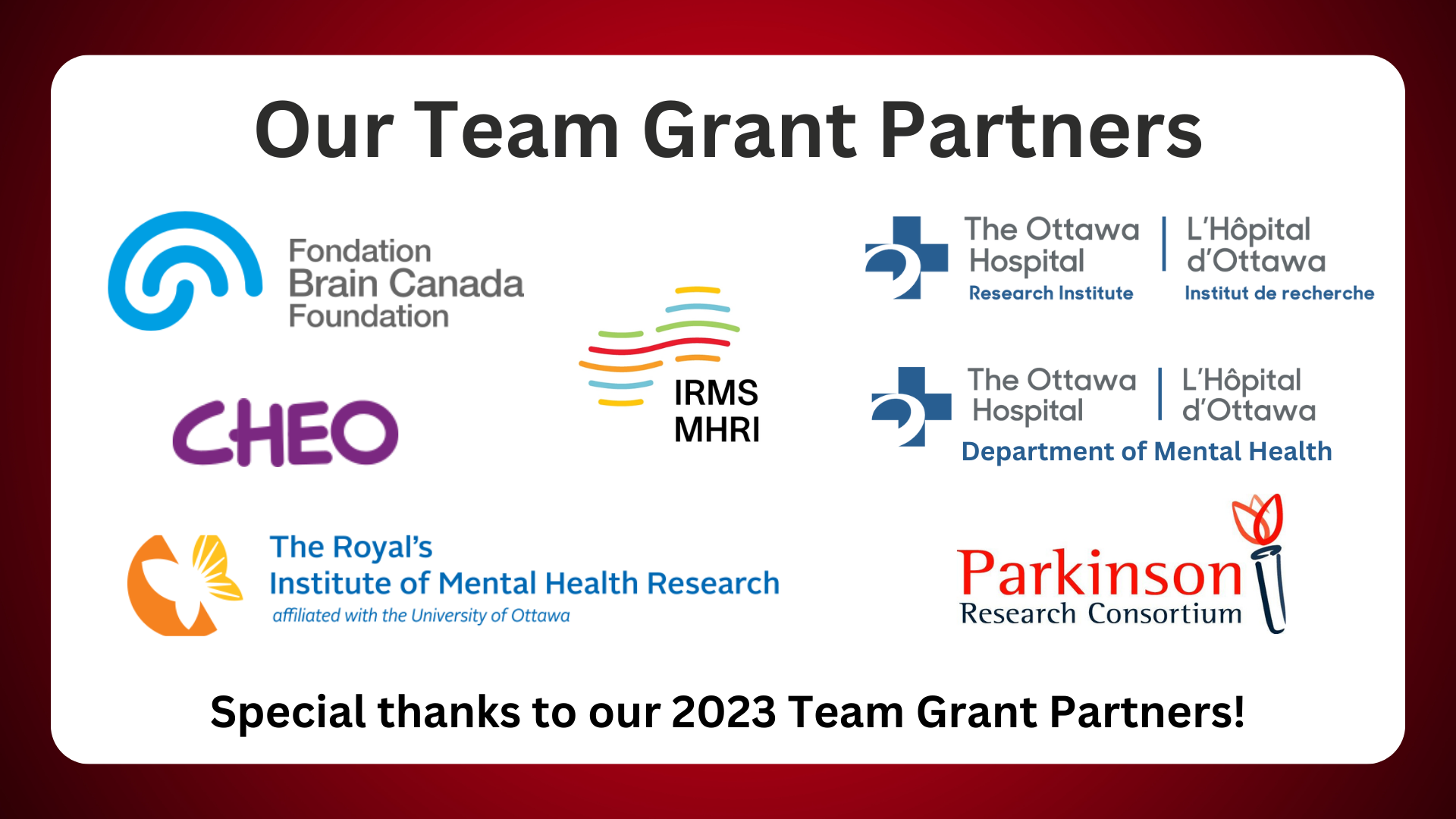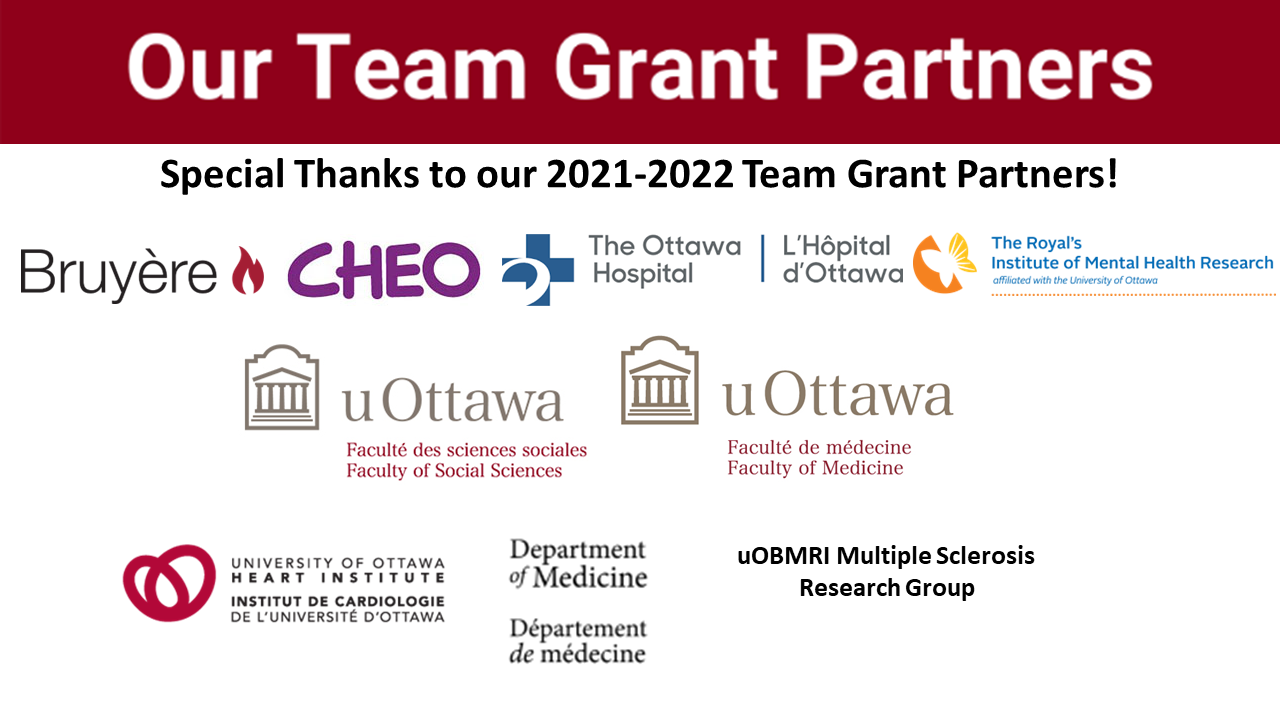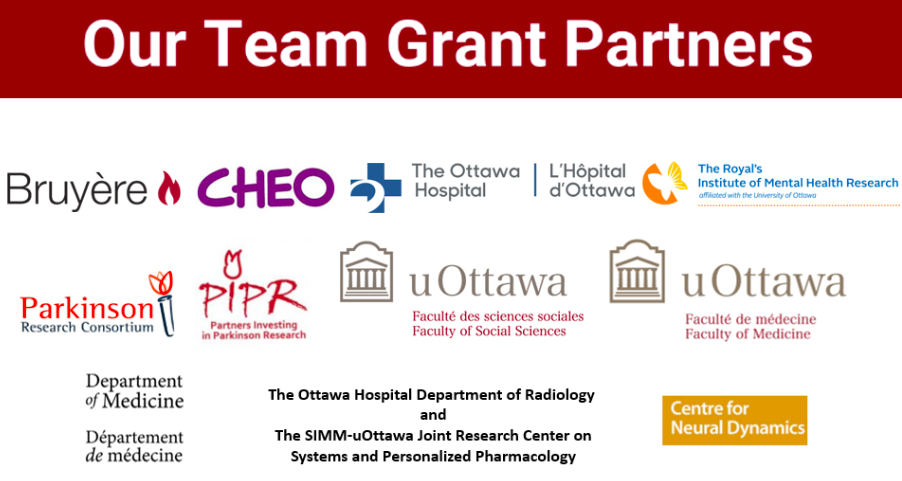Following a rigorous peer-review process, we're incredibly excited to announce that we were able to fund 5 innovative research teams and 2 project renewals in this recent call. This was made possible by seed funding from the uOBMRI and matching funds from various partners that together will support these critical basic and clinical research developments. The uOBMRI's mission is to reduce barriers in research and encourage collaboration. As a result, we're proud to share the following research projects that will be implemented, thanks to our researchers and partners.
uOBMRI Team Grants
In the fall, the uOBMRI invited research proposals from multidisciplinary teams to pursue innovative projects designed to accelerate the creation of research-informed innovations that transform knowledge and create advances in technology, care and prevention, for improved health of individuals and health policy.
Collaboration Funds in Research Excellence
Feasibility and Acceptability of Adjunctive Time Restricted Eating in Bipolar Disorder: A Pilot Randomized Controlled Trial
Gayatri Saraf, MD
Principle Applicant
The Ottawa Hospital/Ottawa Hospital Research Institute, University of Ottawa; uOBMRI
Description
Bipolar disorders (BD) are disabling mental disorders. BD causes significant suffering and reduces quality of life. People with BD spend much of their time depressed. Yet, there are few safe and effective treatments for depression in bipolar disorder. Medications don’t often work and have considerable side effects. We need new treatments that are safe and acceptable.
Recent research has found irregularities in the internal day/night clock in patients with bipolar disorder. Daily rhythms are altered and that impacts mood and behaviour. Time restricted eating (TRE) involves eating only during a specific time window during the day. TRE can normalize daily rhythms. There have been no studies to see if TRE helps with bipolar depression. We will study if TRE can be done in depressed patients with BD. The study will also compare TRE to nutritional counselling. This will support a larger trial of TRE combined with other treatments that target daily (circadian) rhythms in bipolar depression.

Co-Applicants
- Jess G. Fiedorowicz, MD, PhD, Head and Chief of Mental Health at The Ottawa Hospital and Senior Research Chair in Adult Psychiatry at uOttawa
- Marie-Claude Audet, PhD, Associate Professor, School of Nutrition sciences; Adjunct scientist, The Royal’s Institute of Mental Health Research
- Jennifer Phillips, PhD, Neuroscientist, The Royal’s Institute of Mental Health Research; Assistant Professor, Department of Psychiatry, uOttawa
- Rébecca Robillard, PhD, Associate Professor, School of Psychology; Head Scientist, Clinical sleep research program, The Royal’s Institute of Mental Health Research
- Tim Ramsay, PhD, Senior Scientist at the Clinical Epidemiology Program at the Ottawa Hospital Research Institute and Scientific Director of the OHRI Methods Centre
- Nicholas Fabiano, MD, Resident in Psychiatry, uOttawa
- Alashua Pick, Patient advisor
Assessing the Therapeutic Efficacy of Music Interventions on Depression and Anxiety Symptoms of Individuals with Dementia: An Exploratory Clinical Trial
Gilles Comeau, PhD
Principal Applicant
Music and Health Research Institute; School of Music, University of Ottawa; uOBMRI
Description
The overall goalof this intersectoral and interdisciplinary project is to implement and evaluate the impact of a specific music-based intervention, so called “percussion ensemble playing”, on anxiety and depression symptoms of people living with dementia. The percussion ensemble playing is a well-established group-based and participant-centered music approach that can be partaken by anyone (with or without any previous musical training). Older individuals (55+) with mild to moderate dementia, who are showing signs of depression or anxiety will be recruited for this study from The Royal’s Outpatient Program and the Bruyère’s Memory Clinic. Participants will be required to attend a weekly 60-minute music class over a 10-week program and will be assessed before and after the program to document cumulative changes, as well as before and after single music classes to document immediate changes. Measurements will include biological and physiological markers as well as psycho-social qualitative and quantitative data following the methodological approach “single case experimental design (SCED)”, which allows to assess their impact of each single participant and may lead to novel, individualized precision-based interventions. This exploratory clinical trial will provide the knowledge to develop a model for integrating music intervention into the care of people with dementia, with mild to moderate anxiety and depression symptoms. It will also provide the groundwork for large-scale clinical studies and eventually pave the way for routine clinical application of specific music programs.
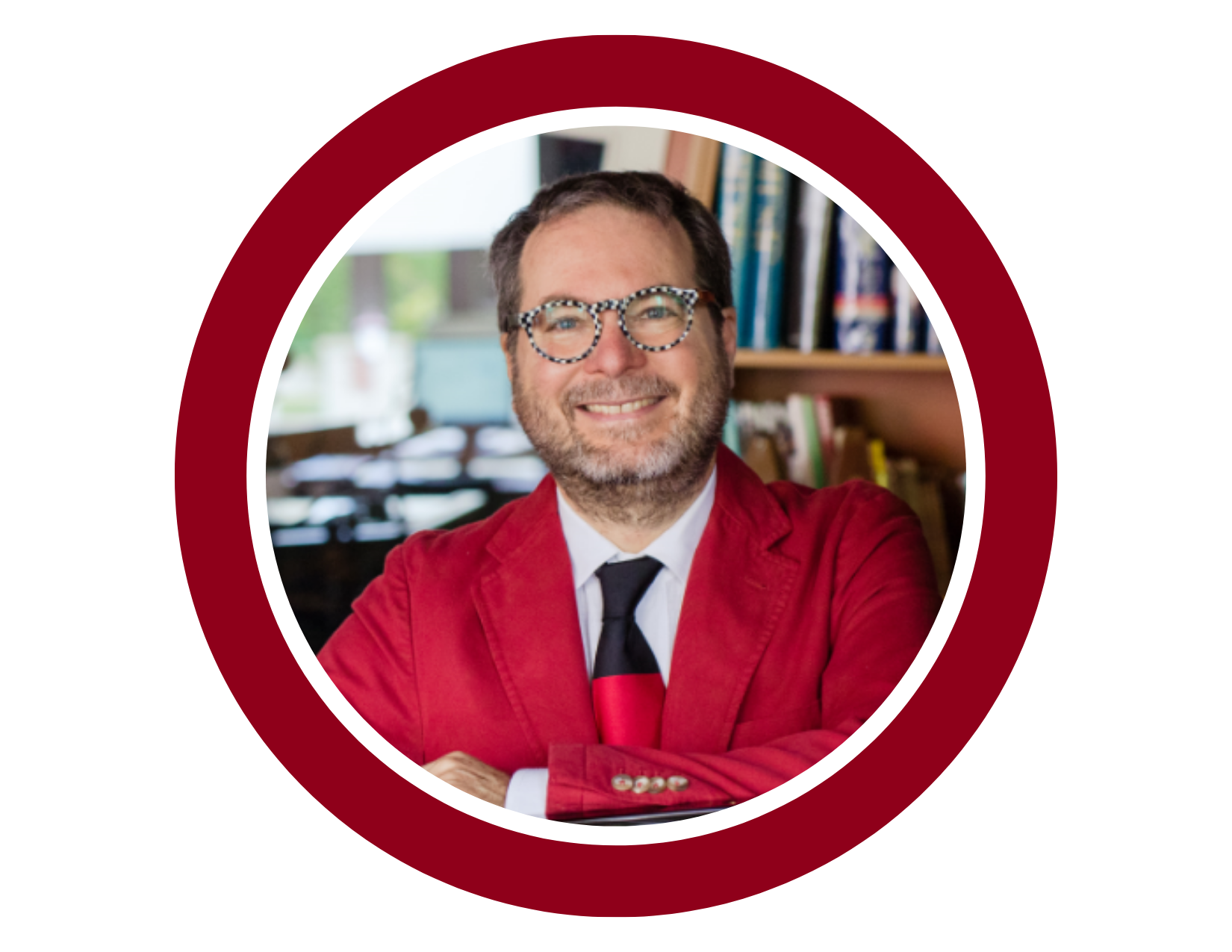
Co-Applicants
- Georg Northoff, MD, PhD, Mind, Brain Imaging, and Neuroethics research unit, Royal Institute of Mental Health Research
- Stuart Fogel, PhD, Early Career Applicant, School of Psychology, University of Ottawa
- Neil Thomas, MD, FRCPC, Early Career Applicant, Bruyère, Memory Clinic; Division of Neurology, Department of Medicine, University of Ottawa
- Octavio Santos, PhD, C. Psych, Neuropsychologist, Department of Psychology, The Ottawa Hospital
- Jason Berard, PhD, Early Career Applicant, Clinical Research Program, The Ottawa Hospital Research Institute
Integrating Neuroimaging, Peripheral Lipidomics and Inflammation to Explore the Biology of Treatment-resistant Depression
Jennifer Phillips, PhD
Principal Applicant
Royal’s Institute of Mental Health Research (IMHR), affiliated with the University of Ottawa; uOBMRI
Description
Approximately 30% of people with major depressive disorder are considered treatment-resistant; their depressive symptoms continue even after trying at least two different types of antidepressant medications. This significantly impacts their quality of life, impairing their work, home, and social lives, and increasing their risk of death. Our team will use a new type of brain imaging called free water diffusion magnetic resonance imaging to measure the connections and strength of white matter tracts in the brain in people with treatment-resistant depression, as well as a control group of people who do not have depression. We will also analyze blood samples from these participants to measure lipids (fats that circulate in the blood associated with inflammation) and cytokines (proteins that cause inflammation), both of which may be altered in depression. This will be the first study to combine brain imaging and blood-based biomarkers of systemic inflammation together using bioinformatics (the mathematical means of combining and analyzing large amounts of medical data). Our findings will help us to better understand the biology of treatment-resistant depression and to identify new treatment targets that could improve the lives of people experiencing depression.
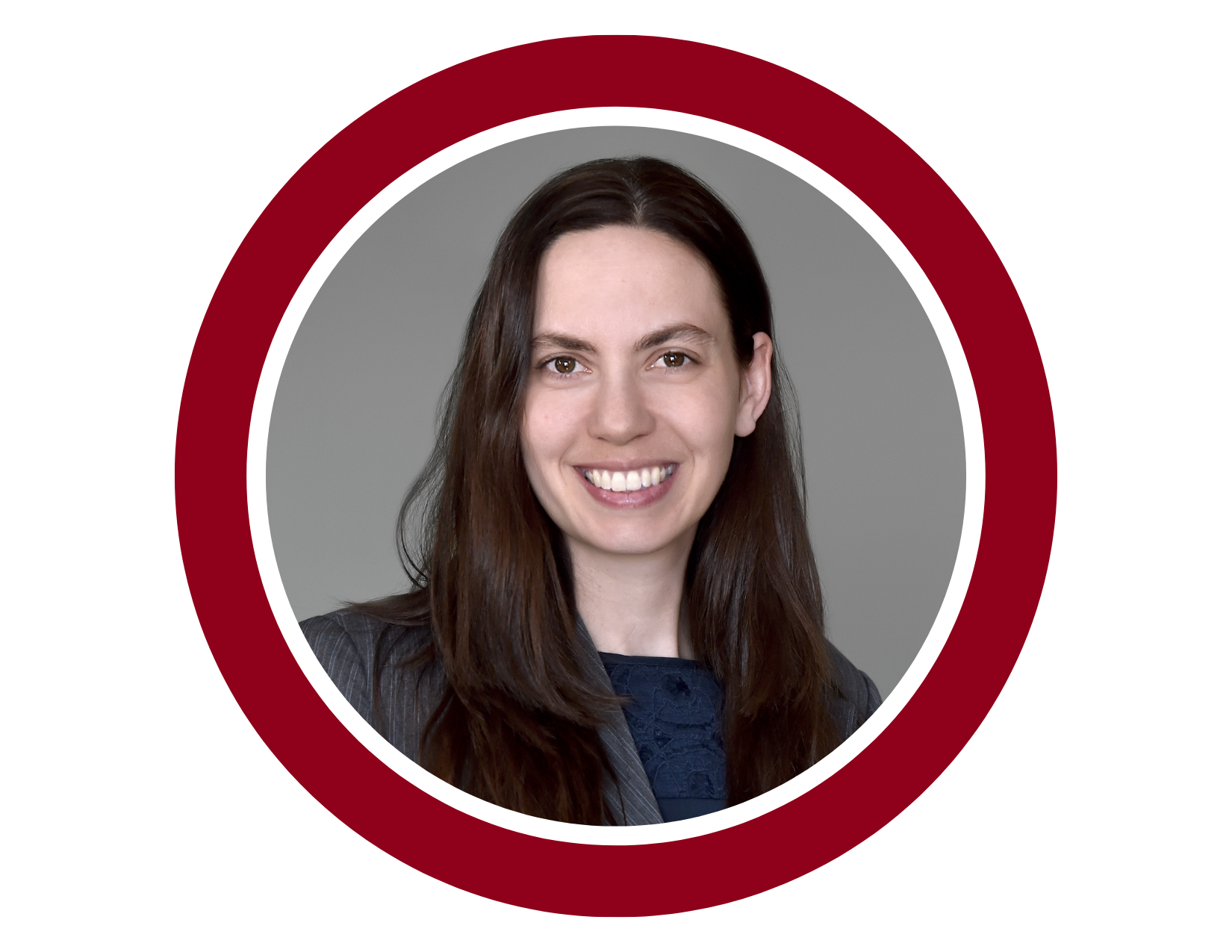
Co-Applicants
- Steffany Bennett, PhD, Department of Biochemistry, Microbiology and Immunology, University of Ottawa
- Gayatri Saraf, MD, PhD, The Ottawa Hospital Research Institute; Department of Psychiatry, University of Ottawa
- Robyn McQuaid, PhD, Department of Neuroscience, Carleton University
- Miroslava Cuperlovic-Culf, PhD National Research Council of Canada
- Ana Santos, Department of Neuroscience, Carleton University; Lived Experience Advisor
Calibrating the PREDIGT Score to Calculate the Incidence of Parkinson’s in Population Cohorts and Piloting it in Primary Care Settings
Michael Schlossmacher, MD
Principal Applicant
Neuroscience Program, Ottawa Hospital Research Institute; uOBMRI
Description
Prolonged wait times to visit a movement disorder specialist continue to be a major obstacle for patients with Parkinson disease (PD) to receive proper diagnosis and treatment. The current wait time at our TOH Clinic for a new referral is 18 months. Despite their safety record, family doctors feel reluctant to prescribe anti-parkinsonian medication due to diagnostic uncertainty and the lack of familiarity with PD. For many medical conditions, formula-based prediction tools have assisted decision making by practitioners. The PREDIGT Score is a hypothesis-driven, simple-to-use mathematical model to predict the development of PD. The model contains 13 variables regarding environmental exposure, genetic risk (we use family history of PD as a surrogate), initial changes in brain function, gender, and age. In our previous study, a self reported questionnaire derived from the PREDIGT Score model, followed by testing the sense of smell, showed great accuracy in distinguishing people with PD from controls in several study cohorts. We have successfully piloted the online questionnaire, which is now completed by participants at home; it revealed a robust performance in identifying patients with typical PD. In the proposed project, the PREDIGT Score model will be fine-tuned using population health data for it to correctly represent the target population in Ontario. Further, 250 subjects newly referred to our Movement Disorder Clinic by family doctors (such as by our consultant Dr. Haig Ashikian), will be invited to complete the online questionnaire and a smell test; their risk score will then be compared to the actual diagnosis at the time of formal assessment by one of our team’s neurologists. If the PREDIGT Score model demonstrates a high concordance rate with the specialist’s diagnosis, family doctors could be enticed to apply it in their practice and have reassurance to initiate symptomatic treatment, which will advance diagnosis and patient care.
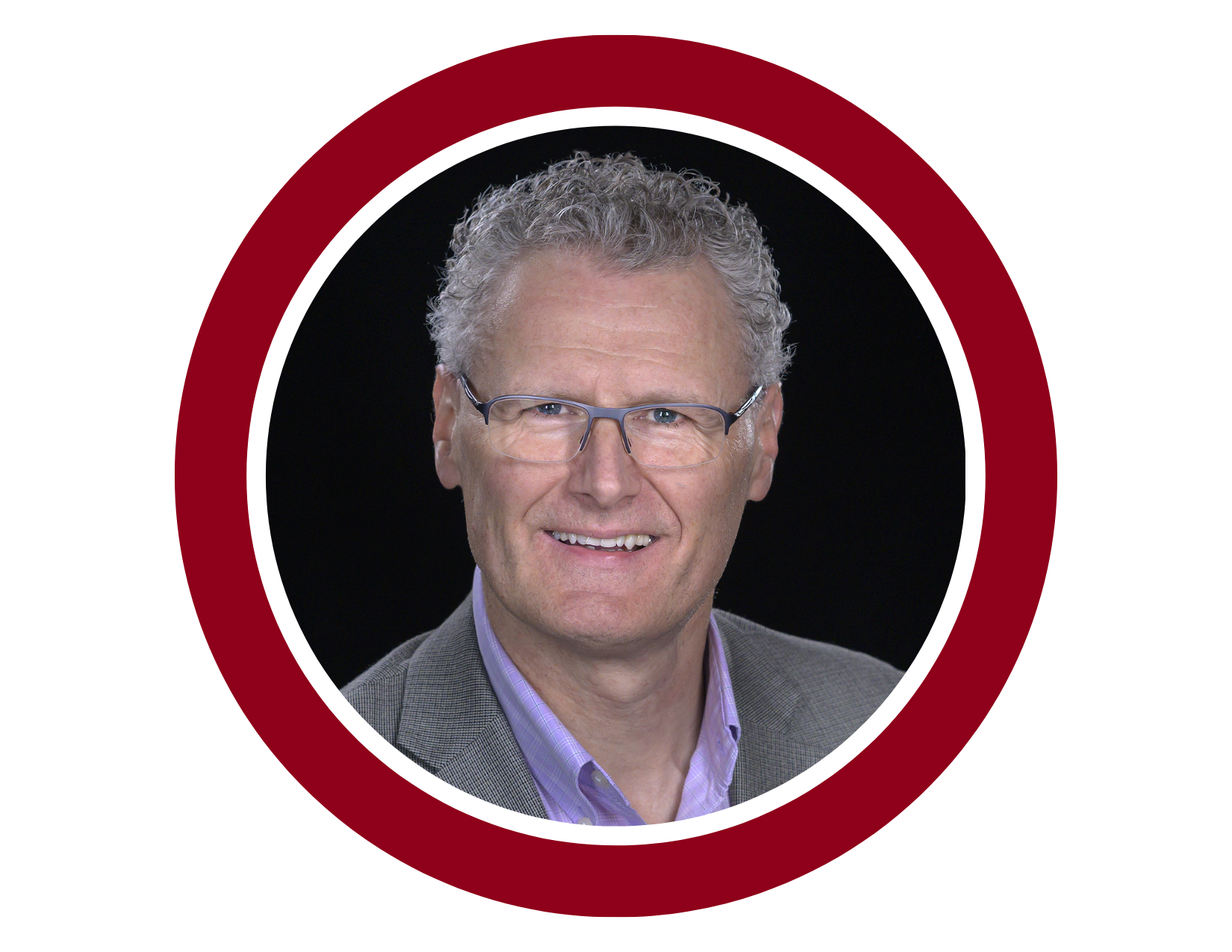
Co-Applicants
- Juan Li, PhD, The Ottawa Hospital Research Institute
- Tiago Mestre, MD, PhD, The Ottawa Hospital
- David Grimes, MD, FRCPC, The Ottawa Hospital
- Tim Ramsay, PhD, The Ottawa Hospital Research Institute
- Peter Tanuseputro, MD, FRCPC, The Ottawa Hospital Research Institute
- Doug Manuel, MD, FRCPC, The Ottawa Hospital Research Institute
- Haig Ashikian, MD, Consultant, Riverside South Medical Centre
Bringing Laser Focus to Voltage Imaging: Enhanced Indicators and Advanced Scanning Methods for Two-photon Recordings
Katalin Tóth, PhD
Principal Applicant
Department of Cellular and Molecular Medicine, Faculty of Medicine, University of Ottawa; uOBMRI
Description
The behaviour of neurons in the brain is dictated by electrical changes. These can be detected and recorded with electrodes; however, this method has serious limitations, we can only record few points in a single neuron (usually one from the soma and one from a dendrite). This project grant aims to develop novel methods that allow the visualization of electrical changes in the entire neuron with the usage of proteins that change their fluorescence in response to changes in voltage. This will allow us to understand how neurons process incoming signals and propagate this to their targets.
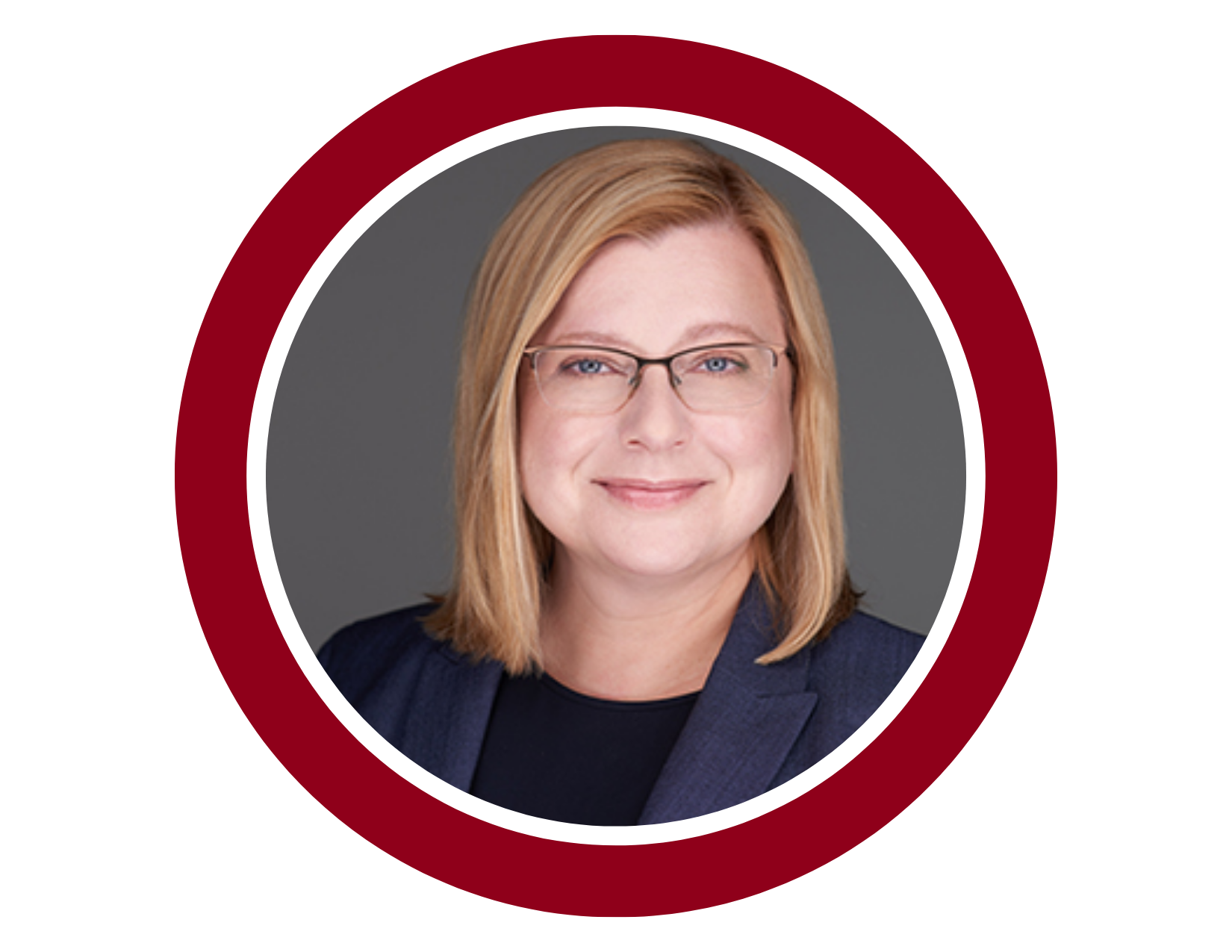
Co-Applicants
- Simon Chen, PhD, Department of Cellular and Molecular Medicine, Faculty of Medicine, University of Ottawa
- André Longtin, PhD, Department of Physics, Faculty of Science, University of Ottawa
Identifying the Short-Term Neurobiological, Metabolic and Behavioural Effects of Contrave as Potential Mechanisms of Weight Loss among Adults with Obesity
Natalia Jaworska, PhD
Principal Applicant
Royal’s Institute of Mental Health Research (IMHR), affiliated with the University of Ottawa; uOBMRI
Description
Background: Obesity is a common chronic disease, particularly in Western nations, linked with other illnesses and earlier death. Many bodily and psychological changes take place when people are on calorie-restricted diets that work against sustained weight loss. This includes increased appetite and food craving. Other factors are a drop in metabolism, which is a predictor of weight regain. Typical obesity management might include medication, such as with the drug Contrave, which has been approved for weight loss in Canada. While Contrave reduces appetite and food cravings in a sizable proportion of people, leading to weight loss, exactly how it works on the brain, body and metabolism is unknown. Such insight is necessary to improve weight management strategies, better understand obesity, and tailor treatments.
Aims: We will examine the effects of 4-weeks of Contrave+diet vs. control (i.e., placebo pill)+diet on body composition and metabolism. Most novel, we will examine brain changes that might occur using brain imaging. Second, we will explore the effects of the interventions on mood and cognition. To our knowledge, most of these outcomes have never been assessed with Contrave.
Methods: We will randomly (i.e., flip of a coin) allocate adults (18-64yr) with obesity into: 1. Contrave + diet program (32 people); 2. Placebo + diet program (32 people). Neither the participants nor researchers will know what treatment participants are getting. All participants will receive individualized dietary intervention with 20% food restriction (overseen by a weight management clinic). We will collect all measures before and 4-weeks after interventions. All participants will be monitored for side-effects and program adherence.
Impact: Currently, virtually nothing is known about the effects of Contrave on the body and brain. A better understanding of these could lead to substantial improvements in obesity management.
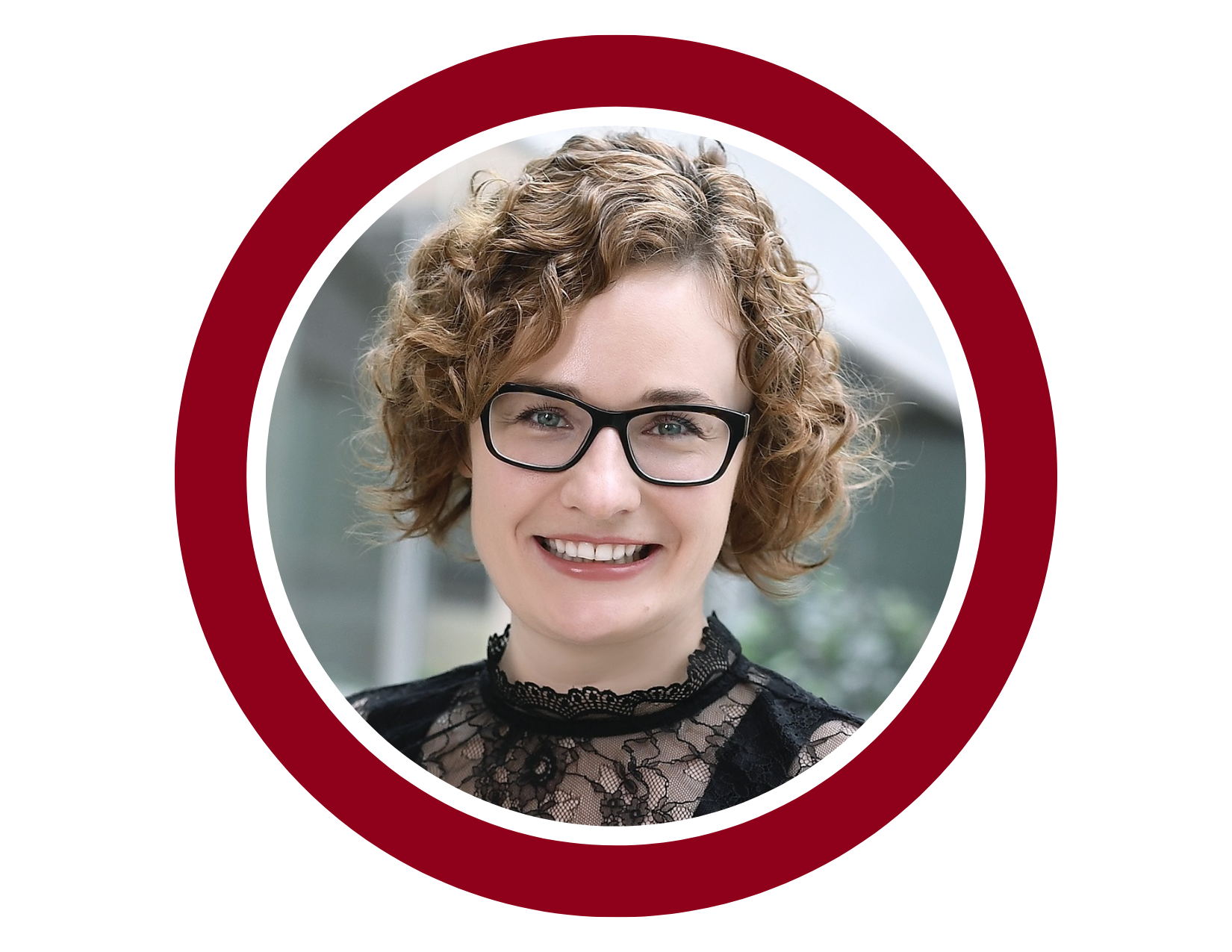
Co-Applicants
- Gary Goldfield, PhD, C. Psych, Senior Scientist, CHEORI; Professor, Department of Pediatrics, University of Ottawa; Adjunct Professor, Department of Kinesiology, University of Calgary; Cross-Appointed Professor, Department of Population Health, University of Ottawa
- Eric Doucet, PhD, Professor, School of Human Kinetics, University of Ottawa
- Andrée-Anne Ledoux, PhD, Early Career Scientist, CHEORI; Assistant Professor, Neuroscience, CMM, Faculty of Medicine, University of Ottawa
- Judy Shiau, MD, FRCP, Medical Director, LEAF Weight Management Clinic; Associate Professor, University of Ottawa; Director of Canadian Association of Bariatric Physicians and Surgeons (CABPS) Board of Directors; Director, Bariatric Medicine Fellowship Program, University of Ottawa
- Pierre Blier, MD, PhD, FRSC, Psychiatrist, The Royal; Full Professor, Departments of Psychiatry & CMM, University of Ottawa; Director, Mood Disorders Research Program, The Royal’s Institute of Mental Health Research; Adjunct Professor, Department of Psychiatry, McGill University
Our team grant partners
Special thanks to our 2023 team grant partners!
